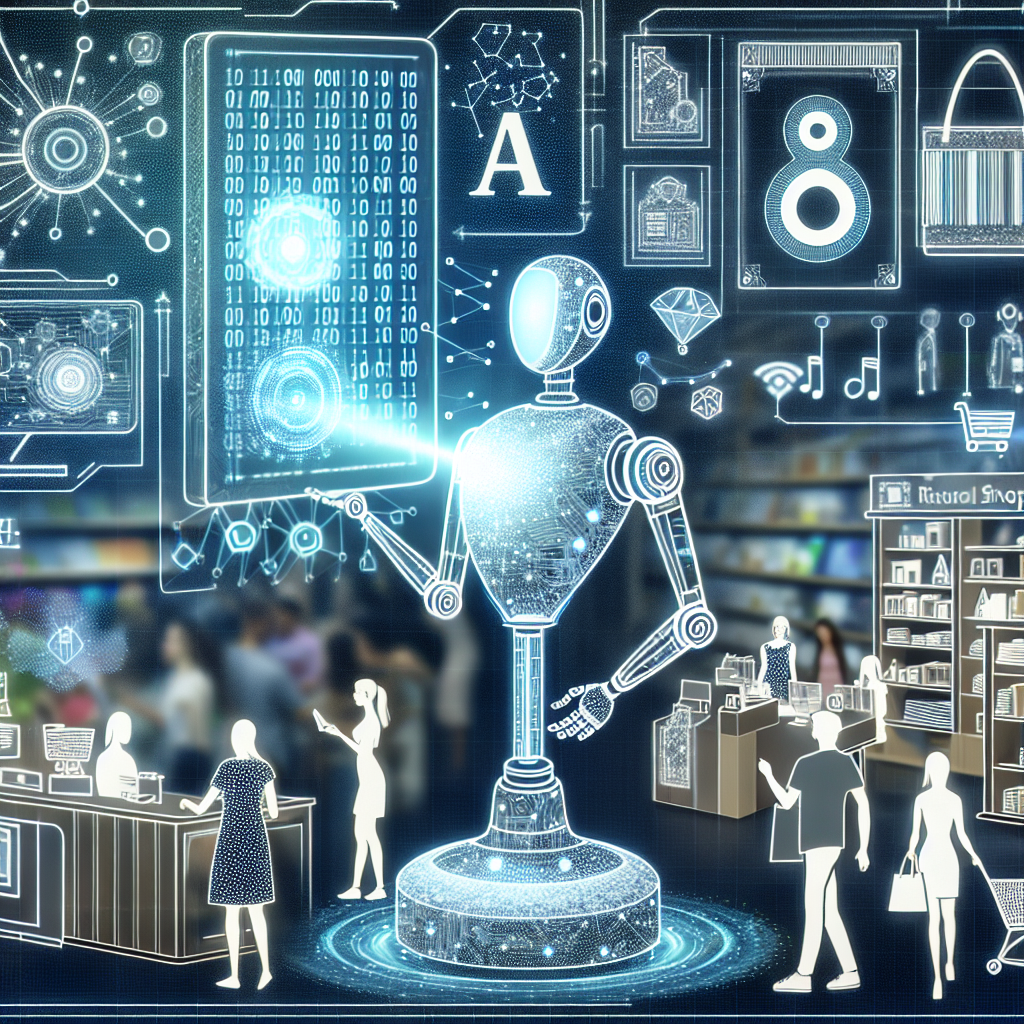AI and machine learning have revolutionized the retail industry in recent years, offering retailers new ways to optimize operations, improve customer experience, and increase sales. From personalized recommendations to inventory forecasting, these technologies are transforming the way retailers do business. In this article, we will explore some of the key applications of AI and machine learning in retail and discuss how they are reshaping the industry.
Personalized Recommendations
One of the most popular applications of AI and machine learning in retail is personalized recommendations. By analyzing customer data and behavior, retailers can use algorithms to suggest products that are most likely to interest each individual customer. This not only helps improve the customer experience by showing relevant products, but also increases sales by encouraging customers to make additional purchases.
For example, Amazon uses machine learning algorithms to recommend products to customers based on their browsing history, purchase history, and other factors. This has been highly successful for the company, with a significant percentage of its revenue coming from recommended products.
Inventory Forecasting
Another important application of AI and machine learning in retail is inventory forecasting. By analyzing historical sales data, seasonality trends, and other factors, retailers can use machine learning algorithms to predict future demand for products. This allows them to optimize their inventory levels, reduce stockouts, and minimize overstock situations.
Walmart is a great example of a retailer that has successfully implemented AI and machine learning for inventory forecasting. By using algorithms to predict demand for products, the company has been able to reduce out-of-stock situations by 30% and increase sales by 2-3%.
Customer Service
AI and machine learning are also being used to improve customer service in retail. Chatbots powered by AI can provide instant responses to customer inquiries, helping to reduce wait times and improve customer satisfaction. These chatbots can be programmed to answer frequently asked questions, provide product recommendations, and even process orders.
For example, H&M has implemented a chatbot on its website and mobile app to assist customers with styling advice, product recommendations, and order tracking. This has helped the company improve its customer service and enhance the overall shopping experience for its customers.
Fraud Detection
AI and machine learning are also being used in retail to detect and prevent fraud. By analyzing transaction data, customer behavior, and other factors, retailers can use algorithms to identify potentially fraudulent activities and take action to prevent them. This helps protect both the retailer and the customer from fraudulent transactions.
For example, PayPal uses machine learning algorithms to detect fraudulent activities on its platform. By analyzing millions of transactions in real-time, the company is able to flag suspicious transactions and prevent fraud before it occurs.
Visual Search
Visual search is another exciting application of AI and machine learning in retail. By using image recognition technology, retailers can allow customers to search for products using images rather than text. This makes it easier for customers to find products that match their preferences and style, leading to a more personalized shopping experience.
For example, Pinterest has implemented a visual search feature that allows users to search for products by uploading images or taking photos. This has helped the company increase user engagement and drive sales through its platform.
Supply Chain Optimization
AI and machine learning are also being used to optimize supply chain operations in retail. By analyzing data on suppliers, transportation routes, and inventory levels, retailers can use algorithms to optimize their supply chain processes and reduce costs. This can lead to faster delivery times, lower inventory holding costs, and improved overall efficiency.
For example, Zara uses AI algorithms to optimize its supply chain operations, allowing the company to quickly respond to changing customer preferences and market trends. This has helped Zara become one of the most successful fast-fashion retailers in the world.
FAQs
Q: How can AI and machine learning help retailers improve customer experience?
A: AI and machine learning can help retailers improve customer experience by providing personalized recommendations, optimizing inventory levels, and enhancing customer service through chatbots. By analyzing customer data and behavior, retailers can offer more relevant products and services to their customers, leading to a more personalized shopping experience.
Q: What are some of the challenges retailers face when implementing AI and machine learning?
A: Some of the challenges retailers face when implementing AI and machine learning include data privacy concerns, lack of technical expertise, and integration with existing systems. Retailers need to ensure that they are collecting and storing customer data securely, hiring skilled data scientists and engineers to develop and maintain AI algorithms, and integrating AI solutions with their existing systems.
Q: How can retailers measure the success of AI and machine learning implementations?
A: Retailers can measure the success of AI and machine learning implementations by tracking key performance indicators (KPIs) such as sales, customer satisfaction, and operational efficiency. By analyzing these metrics over time, retailers can determine the impact of AI and machine learning on their business and make adjustments as needed.
In conclusion, AI and machine learning are transforming the retail industry by providing retailers with new ways to optimize operations, improve customer experience, and increase sales. From personalized recommendations to inventory forecasting, these technologies are reshaping the way retailers do business and helping them stay competitive in a rapidly changing market. By embracing AI and machine learning, retailers can unlock new opportunities for growth and innovation in the digital age.

